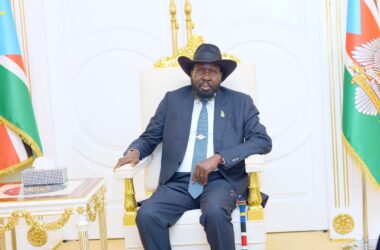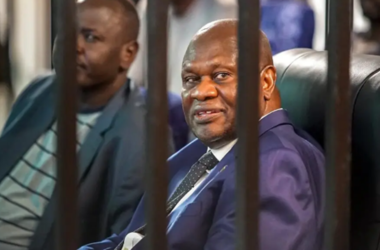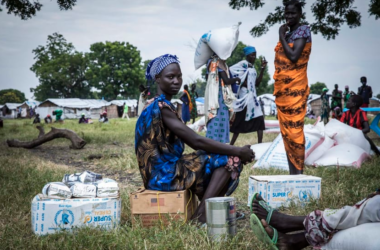By Alan Clement
A lawmaker has urged the government to enforce environmental and biodiversity laws, citing unchecked deforestation and growing community risks from climate change, insecurity, and gender-based violence.
In an exclusive interview, Ibba County MP Jackson Barko Charles vowed to present findings from new research linking peace, gender, and climate change before Parliament, urging lawmakers to expedite the long-delayed Environmental and Forestry Bill and compel the government to enforce existing conservation policies.
“This report is comprehensive. It must guide how we manage our environment and build community resilience. We need to move from rhetoric to action,” he said referring to the findings from a recent study conducted in Budi, Kapoeta East, and Kapoeta South counties.
The lawmaker also revealed plans to establish a Parliamentary Climate Change Network, a cross-sectoral platform bringing together MPs, private sector representatives, and civil society to coordinate national climate and peace initiatives.
He expressed concern over widespread environmental destruction caused by members of the security sector, who, he said, turn to tree-cutting and charcoal burning due to delayed salaries.
“We cannot blame them because they are not paid, but this damage must stop. According to policy, before cutting one tree, you should plant five. This is not happening, and Parliament must intervene,” he stressed.
He further called for active engagement of the private sector, urging telecommunications companies and large firms to help raise awareness on climate change and gender issues through community outreach and digital campaigns.
“The private sector can play a huge role. For example, companies like MTN can help deliver climate awareness messages to their clients. We also urge them to invest in peacebuilding and reconciliation,” he added.
The research, conducted by the Institute of Suicide Research under the program Strengthening Local-Led Intersection Between Peace, Climate Change, and Gender, revealed troubling trends in the targeted counties.
Boboya James Edmond, Chief Executive Officer of the Institute of Suicide Research, said the study conducted over 18 months in Budi, Kapoeta East, Kapoeta South, and Ikwotos counties revealed that conflicts over natural resources, especially water, land, and gold mining, were fueling violence and gender-based abuse in those communities.
He said over 700 cases of gender-based violence were recorded in Budi, Kapoeta East, and Kapoeta South between 2023 and 2024. “These findings are a wake-up call. They show how climate stressors and weak governance are fuelling violence and instability,” Boboya said.
He urged the government and Parliament to take responsibility for implementing the report’s recommendations, noting that sustainability will depend on ownership by local actors and national policymakers.
“This research is unique because it is grounded in community realities. The next step is for government and Parliament to translate these findings into tangible actions,” he said.
He emphasized the need for inclusive resource management and cross-sector collaboration, urging parliament, government, and private actors to act on the report’s recommendations.
“We must benchmark best practices from countries like Uganda and Kenya. South Sudan cannot afford to ignore the links between climate, peace, and gender,” Boboya added.
The report’s release comes amid growing concern over environmental degradation and institutional inertia. Barko said parliament must take the lead in translating research into policy, especially in regions most affected by climate shocks and insecurity.
“We cannot wait for another crisis. This is the time to act, to protect our forests, empower our communities, and ensure peace through sustainable development.”
The study, developed in partnership with civil society and local authorities, highlights the urgent need for coordinated action between state institutions, the private sector, and communities to address the intersectional challenges of peace, gender, and climate change in South Sudan.




